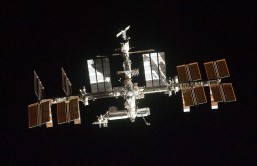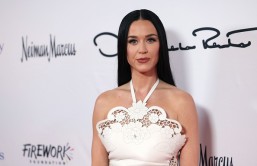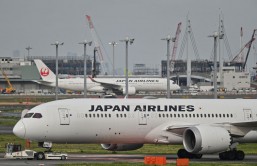California based SpaceX landed its fifth rocket landing Monday morning, sending a commercial cargo craft to the International Space Station and returning to Florida's Space Coast in dramatic night time fashion.
Space X's Falcon 9 rocket blasted off at 12:45 a.m EDT from Cape Canaveral Air Force station in Florida, sending the Dragon spacecraft into space on a resupply mission for NASA.
The rocket released the cargo capsule into orbit just less than 10 minutes after liftoff, sending the supply ship on a two-day trip towards the space station, the second mission of its kind in the last two days.
The capsule is packed with nearly 3,800 lbs. of supplies and scientific gear, including 2,050 lbs. of research samples. Also onboard is an instrument designed to help manage maritime traffic on Earth, said Julie Robinson, chief ISS program scientist.
"From an overall perspective, this is just part of the rich stream of research going on on the space station, from human research, biology, physical sciences investigations and things for exploration technology," Robinson said during Saturday's briefing.
Dragon also brought a docking adapter that will allow future spacecraft to link with the ISS more simply.
"I know how critical this is for NASA and the ISS in general, and also of course for SpaceX going forward with Crew Dragon," Koenigsmann said. "This is a really important piece of hardware."
The launch of the Dragon capsule was the prime objective of Monday's launch, but SpaceX was also able to achieve an experimental landing of the Falcon 9's first stage back to earth, the second time the company has achieved such a feat to Cape Canaveral. The booster landed at 12:53.
"It's a great day for SpaceX, a great day for NASA," Joel Montalbano, NASA's deputy manager of ISS utilization, said during a postlaunch news conference. "The launch campaign was just fantastic to watch."
A thundering sonic boom crackled across the Florida spaceport as the rocket touched down, heralding the booster's homecoming.
This touchdown joins the company's five others and heralds the beginning of the reusable rocket era. CEO Elon Musk has said the technology could dramatically reduce the cost of spaceflight as boosters can be used multiple times.








